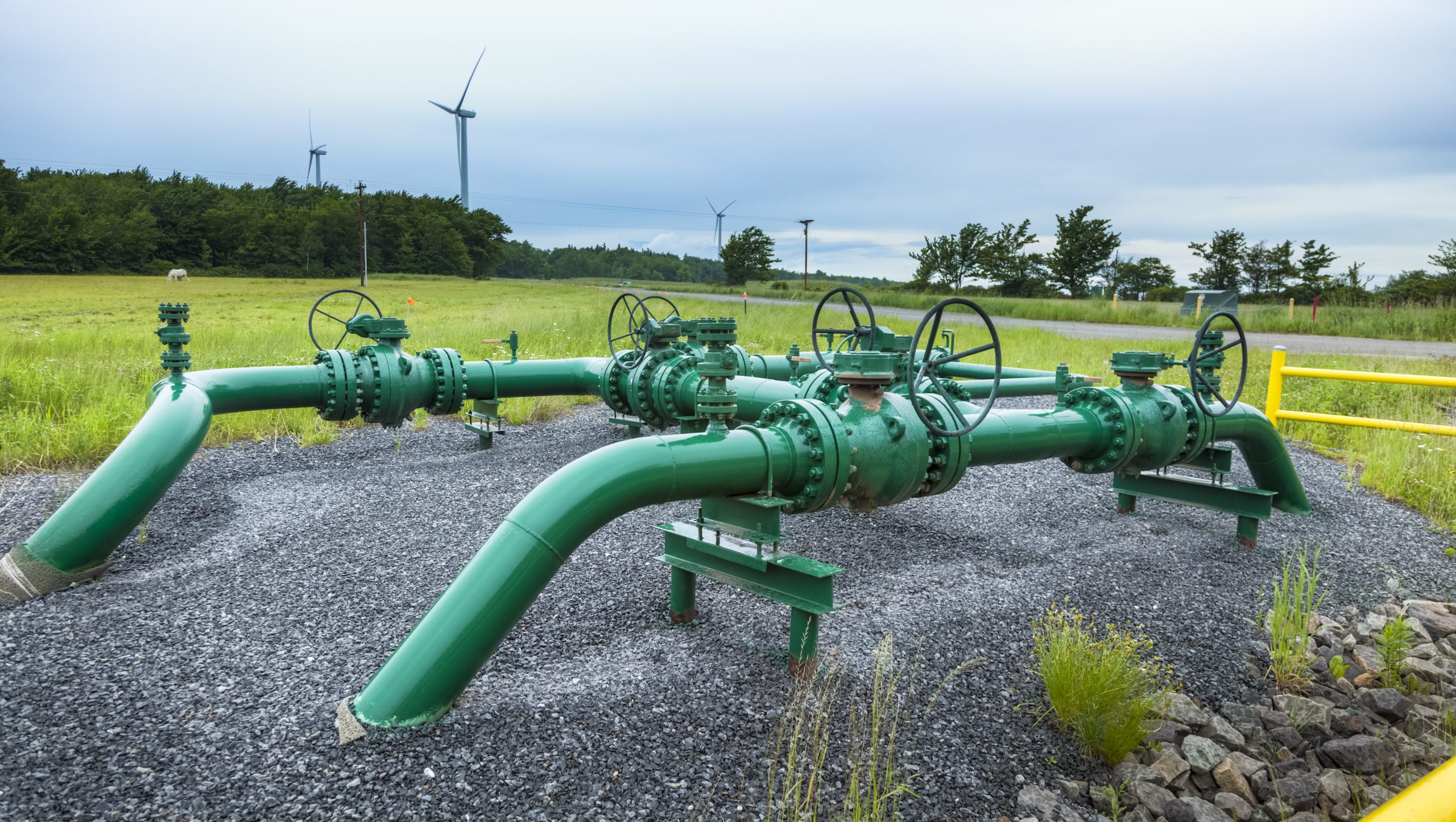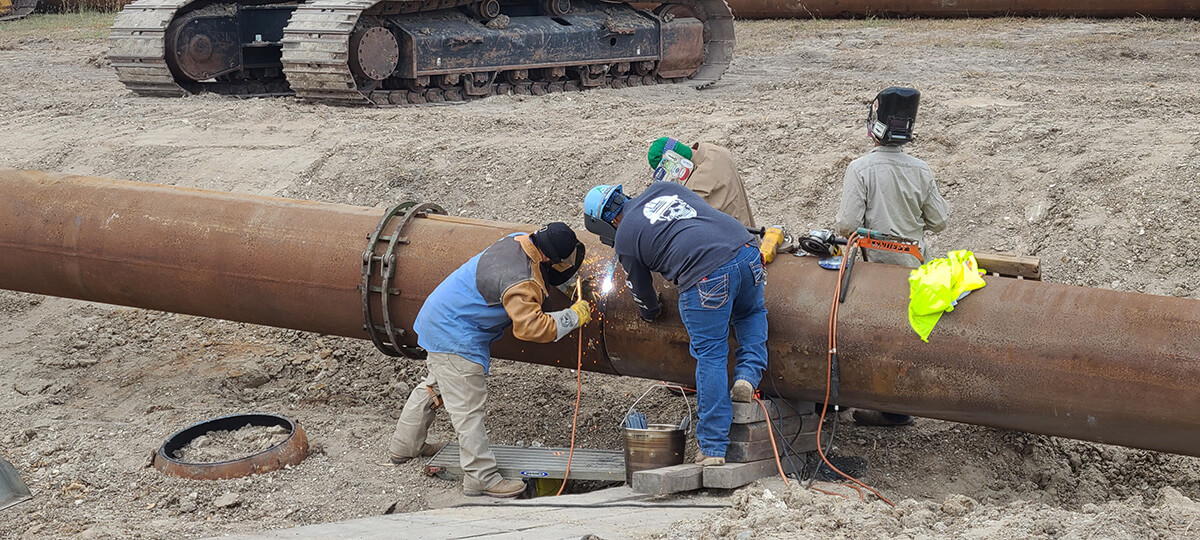How Safety Standards Shape Reliable Pipeline Construction Services
Wiki Article
The Essential Overview to Comprehending Pipeline Construction Providers and Their Importance
Pipeline Construction services are basic to the transportation of important sources such as oil, gas, and water. These services entail precise preparation and execution, adhering to stringent security and ecological criteria. As the industry adapts to contemporary obstacles, understanding its parts and ramifications comes to be significantly important. What factors contribute to the growing value of these solutions in today's economic situation? The complying with sections will certainly explore these vital aspects.Overview of Pipeline Construction Providers
Pipeline Construction solutions include an array of activities vital for the installation and maintenance of pipelines used to carry different substances, including gas, water, and oil. These solutions are critical for guaranteeing the reliable and secure activity of resources from one location to one more. The procedure normally starts with complete preparation and layout, which thinks about regulative needs, environmental considerations, and logistical obstacles.Excavation and grading of the land are conducted to prepare the site for Pipeline setup once preparation is total. This is complied with by the real laying of the pipelines, which entails welding or signing up with sections together to produce a continual flow course. After installment, extensive testing is carried out to guarantee stability and safety and security. Maintenance solutions are likewise provided to attend to any problems that may arise in time. In general, Pipeline Construction services play an essential function in sustaining framework for energy and water circulation.
Key Components of Pipeline Construction
A successful Pipeline Construction job counts on numerous vital parts that assure the effective and safe setup of the Pipeline system. Initially, thorough website assessments are crucial, as they determine the environmental and geographical aspects that may influence Construction. Next, the choice of appropriate materials, such as installations and pipes, is vital for protecting durability and compatibility with the delivered compounds.Progressed Construction strategies, consisting of trenchless technology and directional exploration, enhance efficiency and decrease ecological effect. Efficient project management is another essential component, collaborating labor, tools, and timelines to fulfill task objectives.
Furthermore, interaction among stakeholders, including engineers, professionals, and local authorities, assurances positioning on task specifications and needs. Finally, thorough quality assurance procedures throughout the Construction process make certain conformity with industry standards and make the most of the Pipeline's functional life expectancy. Collectively, these elements develop the backbone of an effective Pipeline Construction job.
Safety And Security Requirements and Rules in Pipeline Construction

Governing bodies, such as the Occupational Security and Health Management (OSHA) and the Pipeline and Hazardous Materials Safety And Security Administration (PHMSA), set forth details requirements that govern Construction practices. These consist of procedures for equipment usage, employee training, and emergency situation feedback procedures. By executing these requirements, Construction firms not only safeguard their workers however likewise secure public trust fund. Ultimately, extensive precaution add to the lasting success of Pipeline tasks, guaranteeing they satisfy both environmental and functional assumptions.
Environmental Factors To Consider in Pipeline Projects

Environmental factors to consider are integral to the preparation and execution of Pipeline jobs. These jobs must assess possible influence on ecological communities, water sources, and regional wildlife. Carrying out detailed environmental influence analyses (EIAs) is essential, enabling stakeholders to identify and reduce dangers prior to Construction begins.
Protecting delicate areas, such as marshes and habitats, typically requires carrying out certain design features or alternate transmitting to lessen disruption. In addition, Pipeline drivers are tasked with developing techniques for protecting against leakages and spills, which can have destructive effects on the setting.
Interaction with neighborhood communities is essential, as public worries can result in project modifications that boost environmental management. Compliance with laws established by environmental companies guarantees that projects fulfill sustainability standards, fostering a balance between facilities demands and eco-friendly conservation. Inevitably, attending to environmental considerations not only safeguards nature but additionally promotes neighborhood trust fund and job feasibility.
The Duty of Innovation in Pipeline Construction
Modern technology plays an important duty in modern-day Pipeline Construction, improving performance and accuracy. Advanced evaluating techniques permit accurate preparation and execution, decreasing ecological influence and project delays. Additionally, the assimilation of automation and robotics streamlines procedures, lowering labor costs and improving security on Construction sites.Advanced Surveying Strategies
Advanced surveying techniques play a necessary function in the successful execution of Pipeline Construction tasks. These approaches take advantage of sophisticated innovation to assure exact mapping and analysis of the terrain where pipes will certainly be installed. Methods such as Geographic Details Systems (GIS), LiDAR (Light Discovery and Ranging), and 3D modeling make it possible for engineers to analyze the landscape and envision, identifying prospective barriers and environmental problems. By using these advanced tools, groups can boost accuracy in placing and positioning, considerably minimizing the threat of errors during Construction. In addition, real-time data collection enables prompt changes and educated decision-making throughout the task lifecycle. Inevitably, these evaluating technologies add to enhanced performance, safety, and sustainability in Pipeline Construction initiatives.Automation and Robotics

Economic Effect of Pipeline Facilities
Pipeline infrastructure plays an important role in helping with and shaping local economic climates profession. By providing a trustworthy ways of carrying oil, gas, and other assets, pipes minimize transport expenses and boost supply chain effectiveness. This infrastructure attracts financial investment, boosts work development, and cultivates economic development in bordering areas.The Construction and upkeep of pipes add significantly to regional economic climates, producing various work possibilities in different markets, from engineering to labor. The increase of jobs usually results in increased investing in regional companies, additionally reinforcing financial activity.
Additionally, pipelines boost energy protection by making certain a steady supply of resources, which is essential for property demands and commercial operations. As regions come to be interconnected via Pipeline networks, they access to broader markets, boosting competition and economic strength. Consequently, the financial impact of Pipeline facilities is complex, influencing both prompt regional economic situations and more comprehensive local growth.
Future Trends in Pipeline Construction Services
The future of Pipeline Construction services is developing in action to technical improvements, regulatory modifications, and expanding environmental factors to consider. Technologies such as drones and robotics are improving examination and upkeep procedures, improving security and effectiveness. Automation is poised to minimize labor expenses and increase precision in Construction operations. Furthermore, the raising focus on sustainability is motivating companies to take on green materials and practices, lining up with international initiatives to reduce carbon footprints.Regulatory read this structures are likewise adapting to address ecological impacts, promoting greater openness and liability in Pipeline projects. The combination of smart technologies, consisting of real-time tracking systems, is anticipated to improve the dependability and performance of Pipeline networks. As energy demands shift toward renewable sources, Pipeline Construction solutions will likely see a rise in jobs connected to biofuels and hydrogen transportation. In general, these patterns indicate a transformative period for the Pipeline Construction market, concentrated on innovation and sustainability.
Frequently Asked Inquiries
What Types of Pipelines Are Generally Constructed?
Numerous sorts of pipes are generally created, consisting of oil, gas, sewer, and water pipes - Pipeline Construction Services. Each serves distinct purposes, helping with the transport of crucial sources throughout areas while adhering to security and environmental regulationsHow much time Does a Normal Pipeline Job Take?
The period of a regular Pipeline project differs substantially, typically varying from a number of months to a couple of years. Variables influencing this timeline consist of project complexity, governing authorizations, and ecological considerations that need to be attended to.That Controls Pipeline Construction Firms?
Pipeline Construction firms are controlled by different government, state, and neighborhood firms, including the Pipeline and Hazardous Materials Safety And Security Administration (PHMSA) and state utility compensations, ensuring compliance with safety and environmental criteria throughout the Construction procedure.What Prevail Materials Used in Pipeline Construction?
Usual products used in Pipeline Construction consist of pvc, polyethylene, and steel. Each product uses distinctive benefits such as resistance, flexibility, and sturdiness to rust, making them suitable for various applications in delivering gases and liquids.
Just How Are Pipeline Construction Costs Approximated?
Pipeline Construction expenses are approximated by evaluating factors such as material expenses, labor rates, task complexity, environmental factors to consider, and regulative requirements (Pipeline Construction Services). Accurate cost estimation warranties reliable budgeting and project next planning throughout the Construction processPipeline Construction services encompass an array of activities necessary for the setup and maintenance of pipelines used to carry different substances, including water, gas, and oil. An effective Pipeline Construction project counts on several vital elements that guarantee the efficient and risk-free installation of the Pipeline system. Advanced evaluating strategies play a vital role in the effective execution of Pipeline Construction tasks. Various kinds of pipelines are typically built, consisting of oil, sewer, water, and gas pipelines. Pipeline Construction costs are approximated by evaluating variables such as material expenditures, labor rates, project intricacy, environmental factors to consider, and regulatory demands.
Report this wiki page